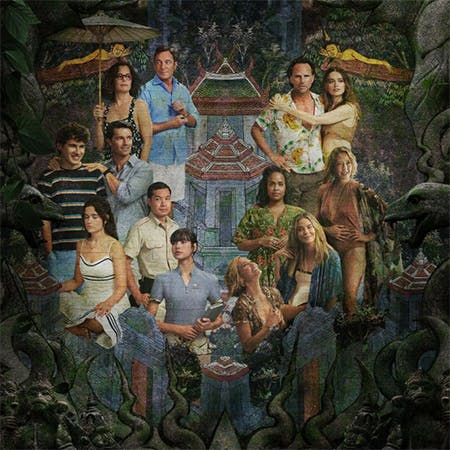belong to world
White Lotus mania - Is it right to aim for success?
When TV series tell stories about power, success, and their dark side, they win over audiences. But what does it really mean to have success? Over the years, Teddy’s journey has shown a different but possible path, one that overturns the meaning of success.

The White Lotus mania is a phenomenon that embraces the world of luxury TV series as much as that of marketing: for those not too familiar with Mike White’s show, The White Lotus places people with power at the center. The luxury hotel chain “White Lotus,” season after season, hosts groups of privileged tourists, easily identifiable by their dubious morality. The show operates with extremes, a kind of “us vs. everyone else”: the hotel guests compared to the staff, the professionals they interact with; each person arrives at a dream location with their own story, their own struggles, and skeletons in the closet.

Goodbye to the glossy world of luxury - Mike White highlights the dark side of power which, in his vision, for it to be achieved requires a Faustian pact with the devil. The underlying question is: what are you willing to do, what are you willing to give up in order to succeed?
In the three seasons available so far - the fourth is coming - the answer to this question seems all too simple. The villains of the moment commit crimes, are arrogant and lacking empathy, see others as rivals or obstacles, and live life from the height of privilege, unconcerned about others’ despair and, especially, their own. But since this is a pact with the devil, consequences arrive quickly: the darkest secrets come to light, choices become more complex, and someone is always lurking, ready to unmask the false hero and show them in their true nature. In The White Lotus, all villains show themselves for what they are: corrupted and broken people because power, perhaps, wears down even those who hold it.

Having set that premise, we asked ourselves, watching the show, if maybe another way is possible. Many things in the world are black or white, but many others allow shades - shades that can make a difference. Let’s try to ask ourselves seriously: what does success mean?
Usually, we’ve become accustomed to applying a quantitative formula to answer this question: I am successful if with x effort I obtain y result. But we well know that this formula contains countless uncontrollable variables, and, according to Mike White, the creator of the series, it is precisely within those variables that the temptation of moral compromise slips in, enabling the person to control the events.


What we have discovered, in our experience, is that perhaps the formula itself is wrong. Instead of measuring success in quantitative terms, we have experimented with overturning the interpretation - focusing on value rather than simply how many goals were achieved - and that gives back the image of success that truly matters.
The first point that emerged from this re-reading - aiming at creating value and not just numbers - is that “the other,” who in The White Lotus is a rival, becomes a resource, an ally. From a new colleague who joins the company bearing dreams and aspirations, to the person who chooses our clothes: what we want to offer goes well beyond numbers and moves closer to an ideal.
Having a constructive outlook whose goal is to generate value implies a relationship of protagonism and exchange between leadership and team, placing at the center the desire to build a relationship founded on awareness of each person’s uniqueness, where diversity is welcomed as a growth factor. Under these conditions the dialogue becomes not only possible and sincere, but also helps discover something new, a new way of looking at one’s work.
The challenge we try to carry with us every day in offices, stores, and warehouses is to keep clear the purpose we have as a Group, the desire that our work has a positive impact on the reality that surrounds us—dressing the world with beauty and welcome. We have noticed how, living work this way, manages to embrace everything: from the needs of the person to the impact we want to have on the world around us.

Any idea of success that censors or sacrifices aspects of the person is necessarily wrong - and it’s evident there is no possible success in the mythical pact with the devil: the consequences are visible both in the world of television series and in great literature. Reality is very different. There are themes that travel through the world of work as if they were utopias, from healthy competition to a business model that truly places the person at the center.
Is it really possible to live work this way? We believe yes, but not without effort. Over the years we have placed ourselves -and continue to do so - in the challenge of keeping alive the dream of our founder, Vittorio Tadei: his desire to dress the world with beauty. And we have understood that it would have truly remained just a dream if we had not begun to live it starting from our offices.
While Mike White tells stories about simple power, we continue to ask ourselves about the ideal, choosing a perhaps more complex path - but the only mystery to uncover is how far we can go if we travel together.